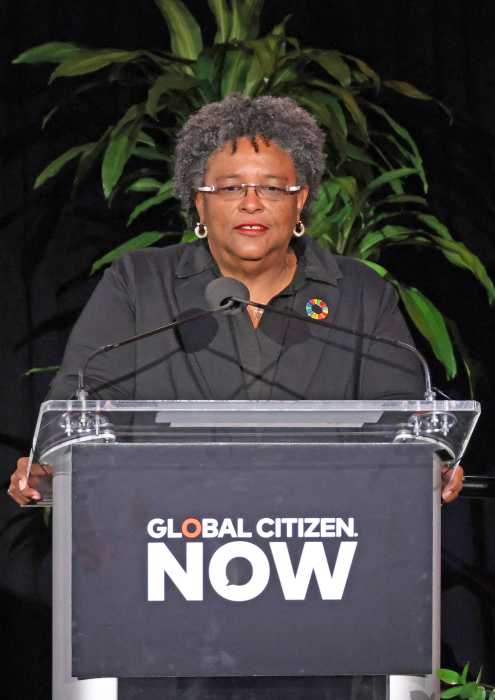Barbados’ economy has suffered another bad review, this from a Caribbean financial rating agency that lowered by one notch the island’s local and foreign currency bond ratings, and placed a negative outlook on them.
The Caribbean Information and Credit Rating Services Ltd (CariCRIS) this week declared that the US$300 million in bond debt Barbados owes to creditors across the Caribbean has been given a downward adjustment because of, “concerns over the continued high fiscal deficit and increasing debt burden, which is being financed by the printing of money, creating a challenge for maintaining the fixed exchange rate, and by the delay in several tourism related foreign direct investments (FDI) projects which may temper economic growth.”
Government had issued these bonds as part of its continued efforts to raise money to finance its operations, and CariCRIS lowered the ratings of those issued in foreign currency from CariBBB-plus to CariBBB, and the amount issued in local currency has been put down from CariA to CariBBB-plus.
CariCRIS stated, “these ratings indicate that the level of creditworthiness of this obligation, adjudged in relation to other obligations in the Caribbean is adequate”.
The announcement of CariCRIS’ downgrade came on Tuesday, the same day that the New York based international rating agency, Standard and Poor’s reaffirmed that it was sticking by its worldwide downgrade five months ago of Barbados’ long-term sovereign ratings from ‘B’ to ‘B-minus.’
Among reasons that CariCRIS gave for its bond downgrade are government’s slow movement towards fiscal consolidation with an ‘intractable’ large debt and burden of interest payment that pushes up the deficit.
The Caribbean financial rating agency has said that the continued economic woes put into question the value of the Barbados dollar, which has held its peg against the United States currency for 41 years.
“Barbados has maintained an exchange rate of Bds $2 to US $1 since 1975 and the authorities have given the commitment that this will continue,” CariCRIS stated, and continued, “However, the fixed exchange rate is under threat of revaluation due to the printing of money to finance the fiscal deficit, which expands the supply of Barbados dollars relative to demand at that exchange rate and reduces confidence in the currency, as well as the decline in foreign exchange reserves as a result of persistent balance of payments shortfall.”
In reaction to the Tuesday downgrade, Economist and University of the West Indies Lecturer in Finance and Banking, Jeremy Stephen, said CariCRIS’ analysis meant it, “was expecting a devaluation [of the currency] without saying that much.
“Anytime you see a rating drop like that, it increases the likelihood, in their minds, of a devaluation coming sooner, rather than later.”


























